Best of 2013 inauguration
Best of 2013 inauguration
Best of 2013 inauguration
Best of 2013 inauguration
Best of 2013 inauguration
Best of 2013 inauguration
Best of 2013 inauguration
Best of 2013 inauguration
Best of 2013 inauguration
Best of 2013 inauguration
Best of 2013 inauguration
Best of 2013 inauguration
Best of 2013 inauguration
Best of 2013 inauguration
Best of 2013 inauguration
Best of 2013 inauguration
Best of 2013 inauguration
Best of 2013 inauguration
Best of 2013 inauguration
Best of 2013 inauguration
Best of 2013 inauguration
Best of 2013 inauguration
Best of 2013 inauguration
Photos: Best of 2013 inauguration
Best of 2013 inauguration
Best of 2013 inauguration
Best of 2013 inauguration
Best of 2013 inauguration
Best of 2013 inauguration
Best of 2013 inauguration
Best of 2013 inauguration
Best of 2013 inauguration
Best of 2013 inauguration
Best of 2013 inauguration
Best of 2013 inauguration
Best of 2013 inauguration
Best of 2013 inauguration
Photos: Best of 2013 inauguration
Photos: Best of 2013 inauguration
Photos: Best of 2013 inauguration
Photos: Best of 2013 inauguration
Photos: Best of 2013 inauguration
Photos: Best of 2013 inauguration
Best of 2013 inauguration
Best of 2013 inauguration
Best of 2013 inauguration
Best of 2013 inauguration
Best of 2013 inauguration
Best of 2013 inauguration
Photos: Best of 2013 inauguration
Best of 2013 inauguration
Best of 2013 inauguration
Best of 2013 inauguration
Best of 2013 inauguration
Best of 2013 inauguration
Best of 2013 inauguration
Photos: Best of 2013 inauguration
Best of 2013 inauguration
Best of 2013 inauguration
Best of 2013 inauguration
Photos: Best of 2013 inauguration
Best of 2013 inauguration
Best of 2013 inauguration
Best of 2013 inauguration
Photos: Best of 2013 inauguration
Best of 2013 inauguration
Best of 2013 inauguration
Best of 2013 inauguration
Best of 2013 inauguration
Best of 2013 inauguration
Best of 2013 inauguration
Best of 2013 inauguration
<<
<
1
2
3
4
5
6
7
8
9
10
11
12
13
14
15
16
17
18
19
20
21
22
23
24
25
26
27
28
29
30
31
32
33
34
35
36
37
38
39
40
41
42
43
44
45
46
47
48
49
50
51
52
53
54
55
56
57
58
59
60
61
62
63
64
65
66
67
68
69
70
71
72
>
>>
STORY HIGHLIGHTS
- Contributors offer impressions of Barack Obama's second inaugural address
- Julian Zelizer says speech a ringing defense of liberalism, obligations of citizens
- Donna Brazile says speech spells out "American faith; Tim Stanley says it shows division
- Bob Greene: He spoke of "never-ending journey" for U.S.; more remarkable journey is his
(CNN) -- President Barack Obama was sworn in Monday for a second term. CNN contributors and analysts offered these assessments of the 44th's president's inauguration:
Julian Zelizer: A call to the obligations of citizenship
The speech connected the greatest generation with our generation. In a ringing defense of liberalism and the obligations of citizenship, Obama called on the nation to complete the unfinished struggles of the 1950s and 1960s -- making rights real, giving more Americans the tools they need to work their way into the middle class and caring for those who can't care for themselves.

Julian Zelizer
He didn't present this as an argument from a Democratic president, but rather as a leader who believes the nation is exceptional. He continued to express his desire to search for the middle way, but based on a strong defense of the political tradition that shapes him. It was powerful oration for a contentious moment in national politics.
Julian Zelizer is a professor of history and public affairs at Princeton University. He is the author of "Jimmy Carter" and of "Governing America."
Obama's address: Full text
Donna Brazile: Speech defined 'American faith'
Obama's second inaugural address was a deeply moving and patriotic speech.
It was one of the most effective usages of the founding documents' principles as a supporting narrative -- drawing us from the past to the present to the future. It combined two of Obama's greatest strengths: his reason (constitutional analysis, desire to teach) with his poetic skills as a writer and a leader.
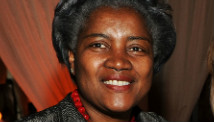
Donna Brazile
He touched on some of the practical challenges facing America. And in addressing these, he reaffirmed the approach he outlined during the election.
But the speech itself was about a different kind of affirmation. It echoed sentiments and subjects that have been a motif of his presidency, indeed his career. Obama defined what may be called an American faith.
In referring to the Declaration of Independence's guiding principle, he said, "For history tells us that while these truths may be self-evident, they have never been self-executing; that while freedom is a gift from God, it must be secured by his people here on Earth."
Each balanced phrase and each oscillation between where we have been and where we must go elaborated this theme: The American faith is the faith in America. "We are true to our creed," he said, when even a little girl born in poverty knows that she has the same chance to succeed as anybody else, because she is an American, she is free, and she is equal, not just in the eyes of God but also in our own."
I will long ponder this, that "preserving our planet, commanded to our care by God ... will lend meaning to the creed our fathers."
This may not be remembered as the most stirring or oratorical inaugural speech. But it was a president sharing with the nation his values most personal and vision most spiritual.
Donna Brazile, a CNN contributor and a Democratic strategist, is vice chairwoman for voter registration and participation at the Democratic National Committee. She is a nationally syndicated columnist, an adjunct professor at Georgetown University and author of "Cooking With Grease." She was manager for the Gore-Lieberman presidential campaign in 2000.
Obama embraces key social justice movements
Alan Brinkley: Richard Blanco a new Walt Whitman?
Inaugurations are usually pretty dull, and second-term inaugurations are usually even worse. Obama's speech was much better than I thought it would be -- not one for the ages, but good for our time. The crowds, perhaps surprisingly, were enormous -- almost as large as 2008.
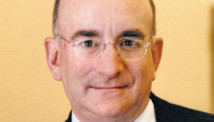
Alan Brinkley
Obama spoke clearly about his own views without openly criticizing his opponents. As he did in 2008, he continued to call for compromise, although he must have known that little compromise in Congress is waiting. And so he continued with his list of his hopes -- few of which will likely succeed.
No one has reached the level of Lincoln's second inauguration speech. Obama's speech is not likely to be remembered in the way Lincoln's was. But it was better than most inaugural speeches, and better than his 2008 speech. To me, though, the best part of the inauguration was the little known poet Richard Blanco, who sounded like a new Walt Whitman.
Alan Brinkley is the Allan Nevins professor of history at Columbia University.
Inaugural poet: My story is America's
John Avlon: Reclaiming 'American exceptionalism' from conservatives
Obama used his second inaugural address to recast contemporary political debates in the larger sweep of American history, implicitly making the case that the current Democratic Party's agenda is in the mainstream of American history, part of a constant process of forming a more perfect union -- with individual freedom heightened best when balanced with community security.

John Avlon
It was an audacious speech to the extent that Obama sought to reclaim politicized concepts like American exceptionalism from their conservative contexts, making the case that the combination of diversity and opportunity makes the American Dream possible for each new generation.
The president did not shy away from commenting on contemporary policy debates, saying that "the commitments we make to each other -- through Medicare and Medicaid, and Social Security -- these things do not sap of initiative, they strengthen us. They do not make us a nation of takers; they free us to take the risks that make this country great." Somewhere in La Jolla, California, Mitt Romney's ears were burning.
Although the ambitions of the speech were audacious, the scope of the speech was sprawling and dotted with policy references more suited to a State of the Union address. It was not tightly framed or focused on a single concept, nor was there a single clear phrase that summed up the speech, at least at first listen.
The closing refrain -- a reminder that the presidential oath of office is an extension of the oath of citizenship taken by new immigrants or the oath taken by soldiers -- also offered a reach across the aisle: "It was an oath to God and country, not party or faction." Balanced with the pointed presidential reality check that "We cannot mistake absolutism for principle, or substitute spectacle for politics, or treat name-calling for reasoned debate," it summed up the hopes of this inaugural moment and the import of his decisive re-election amid such a divided political landscape.
Here's hoping for all of us that those patriotic emotions -- those actual imperatives of self-government -- are carried forward into the next Congress.
John Avlon is a CNN contributor and senior political columnist for Newsweek and The Daily Beast. He is co-editor of the book "Deadline Artists: America's Greatest Newspaper Columns." He is a regular contributor to "Erin Burnett OutFront" and is a member of the OutFront Political Strike Team. For more political analysis, tune in to "Erin Burnett OutFront" at 7 ET weeknights.
Sworn in again, Obama lingers for last look
Anne-Marie Slaughter: A welcome focus on climate change
This was the rainbow inauguration. It was dedicated above all to showcasing the diversity of the American people and calling on us once again to fulfill the promise of e pluribus unum -- out of many, one. Foreign policy got a scant few paragraphs.
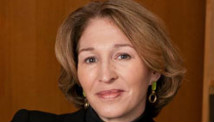
Anne-Marie Slaughter
But the single most important moment was Obama's decision to list our commitment "to respond to the threat of climate change" as the first mention of a foreign policy issue. He spoke of leading a transition to sustainable energy resources, a national grand strategy that has recently been proposed by Patrick Doherty of the New America Foundation, building on the proposal of a new strategic narrative by two military men working for Adm. Michael Mullen when he was chairman of the Joint Chiefs of Staff.
Climate change is in fact the most important existential and security issue of our time. Equally important, it is both a foreign policy and a domestic policy issue. Obama believes that how we respond to our domestic challenges will determine our power and influence in the world, so he will bring troops home, engage the world through partnerships, support democracy through the power of our example, and, as he said so often on the campaign trail, engage in nation-building here at home.
Anne-Marie Slaughter is a professor of politics and international affairs at Princeton University. She curates foreign policy on Twitter at @slaughteram.
The best Inauguration Day tweets
LZ Granderson: Cheers for one Supreme Court rock star
The crowd cheered when President Obama was introduced. It cheered loudly for the first lady and her bangs. The people politely applauded Nancy Pelosi, Harry Reid and other leaders of the Democratic Party.
When Beyonce and Jay-Z were shown on the big screen, there were screams and when the Clintons emerged, shouts. None of this was unexpected.

LZ Granderson
What did surprise me was the enthusiastic reaction to Sonia Sotomayor. Maybe it was because she was selected to swear in Vice President Biden, though John Roberts was barely recognized when he was on the screen and he saved Obamacare.
You would think for a crowd as partisan as this one -- Paul Ryan was booed loudly -- that Roberts would get some love. But nope. On this day there was room for only one Supreme Court rock star and it was the wise Latina from the Bronx who, despite all of her success, still admits to suffering a tad from imposter syndrome.
Perhaps hearing hundreds of thousands of people cheer at the sight of her face will help her get over it.
LZ Granderson, who writes a weekly column for CNN.com, was named journalist of the year by the National Lesbian and Gay Journalists Association and is a senior writer and columnist for ESPN the Magazine and ESPN.com. Follow him on Twitter: @locs_n_laughs.
Ana Navarro: Today, revel in the strength of democracy
I love the pomp and circumstance of inaugurals. I love the significance of the traditions. I was born in Nicaragua into a dictatorship that had already lasted more than two decades. I lived through a civil war and communist revolution before I was 10.
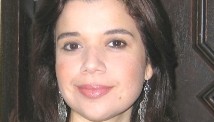
Ana Navarro
Today, I am fortunate to live in a country where for 224 years we have had peaceful transitions of government. Sadly, it is something of a rare occurrence in our hemisphere and our world. In these difficult times when political divisions and ideological differences dominate our political discourse, we must not take for granted the strength of our democracy. We cannot forget, that in other countries, political disagreements can land you in exile, jail or a grave.
Inaugurations are a day for unity and vision, a day for lofty rhetoric and inspiration. It's not a day when we wave a magical wand to erase divisions. Instead, it is a day when in spite of those divisions, we recognize that our Constitution and democracy prevail.
I'm not going to dissect Obama's speech. Former Jimmy President Carter called it a "very progressive" speech. I agree. There were many lines in that speech that the coalition that voted for Obama will find encouraging, and those who didn't vote for him, will not. We have plenty of time to focus on those differences. Today, let's focus on what brings us together, not drives us apart
Ana Navarro, a Republican strategist and commentator, was national Hispanic campaign chairwoman for John McCain in 2008 and national Hispanic co-chair for Jon Huntsman's 2012 campaign. Follow her on Twitter @ananavarro.
Obama's second-term priorities
Timothy Stanley: President's speech laid out America's divide
Obama obviously intends to govern as he campaigned -- as a committed, uncompromising liberal. We were promised one of those "bring us together"-type speeches that typified the heady days of 2009; instead we got a more policy specific speech that reflected the difficult, partisan reality of 2013. Obama has an agenda, and he's willing to fight for it.

Timothy Stanley
The philosophical ground work was laid out. Freedoms, we learned, "are self-evident but not self-executing." It requires "collective action" to realize basic liberties. And we cannot truly be free if dominated by a "privileged few." So we were promised economic justice, renewable energy and a moral commitment to gay rights -- "for if we are truly created equal, then surely the love we commit to one another must be equal as well." For that line alone the speech proved controversial but admirably courageous. All of this is germane to European politics, but it feels radical coming from a U.S. president. It wouldn't have been out of place if he had joined James Taylor in a rendition of "I'd Like to Teach the World to Sing."
Obama's presidency was supposed to heal the nation, but it's notable just how divided it feels today. Aside from the polls that show significant numbers of Americans are worried about the future (and worrying numbers of Republicans hoping that the president's policies will fail), the biggest marker of this is the growing philosophical difference between the parties. If Romney had won, his speech would no doubt be equally as partisan but very different in tone and content. And the enormous gulf between Obama's collectivist reading of the Constitution and Romney's individualist one reflects the fracturing of the country into camps that understand their country's history and values very differently.
Of course, if Romney had won, the speech probably also wouldn't have been so good. On style alone, Obama has earned his place in history. What he makes of his second term, however, will be determined by forces beyond his control.
Timothy Stanley is a historian at Oxford University and blogs for Britain's The Daily Telegraph. He is the author of "The Crusader: The Life and Times of Pat Buchanan."
'Mr. President, please fix America'
Maria Cardona: Hope and change undimmed
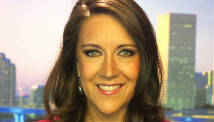
Maria Cardona
It was more sober in this inaugural address, but Obama's message is still one of hope and change. On a cold, windy morning, before a smaller throng than last time around, the president laid out his vision with a keen focus on what got him: his championing of the middle class, a recognition and celebration of the growing and powerful demographics in this country -- Latinos, women, the lesbian, gay, bisexual, and transgender community, and young people -- and a reaffirmation that we "are all in this together."
The historic participation of four Latinos front and center and his mention of immigration reform- by description if not by name, underscored the importance of the Latino electorate. You saw co- chair of the Inaugural Eva Longoria, Justice Sonia Sotomayor who swore in Vice President Biden, openly gay Latino poet Laureate Richard Blanco reciting a riveting poem that reflected the diversity of the country, and the Rev. Luis Leon, who gave part of the benediction in Spanish. This, along with the president's acknowledgment in his speech that we cannot be a country that is unwelcoming of immigrants or one that does not embrace young immigrants who have studied hard and want to succeed, was a clear indication that the president understands that the 71% of Latinos who helped get him elected will be looking for him to have their back. It seems he will.
He was also defiant in his defense of the middle class and put his opponents on notice that he will not back down in the fights ahead to ensure that Medicare and Social Security remain strong and that our economy is rebuilt for everyone, not just the privileged few. He gave his supporters hope he will continue to fight for them. He gave all Americans the assurance the country will continue to change for the better. Still: hope and change.
Maria Cardona is a Democratic strategist, a principal at the Dewey Square Group, a former senior adviser to Hillary Clinton and former communications director for the Democratic National Committee.
A tale of two terms: Obama's unfinished business and battles ahead
Bob Greene: Obama's remarkable journey
"A never-ending journey."

Bob Greene
Obama used those words to describe America's path. But, long after most of the specific words of his second inaugural address fade into memory, it is another journey -- his -- that will be endlessly instructive, both for his admirers and his detractors.
The ambition, the lightning speed with which, in 10 brief years, he changed the trajectory of his life, seem only more remarkable on a day like Monday, when, at the U.S. Capitol, the Brooklyn Tabernacle Choir sang "The Battle Hymn of the Republic" as he waited to again take the oath of office.
Among the faces at the Capitol as Obama arrived was that of a congressman from Illinois named Bobby Rush. Ten Januarys ago Obama was a member of the state Legislature in Illinois, having returned to those chambers after, in 2000, suffering a humiliating defeat. He had hoped to go on to national politics, to the U.S. Congress, but Rush had crushed him 2-to-1 in the primary. Obama's career, at least beyond the confines of Springfield, Illinois, seemed stalled.
In January of 2003, could even Obama, with all his self-confidence, have imagined that in January of 2013 he would be taking the oath of presidential office for the second time?
He will only be 55 when he finishes his second term. Perhaps, when all the politics are done, he will feel at ease to explain, in human terms, just how he convinced himself that all of this was even remotely possible.
"We cannot afford delay," he said to the nation Monday.
He was referring to all of us, to the country. But you could look at him and consider what must go through a person's mind when he seems stuck in a place he doesn't want to be, and decides that urgency may be the only answer.
"We are made for this moment," he said Monday, the words traveling around the world.
CNN contributor Bob Greene is a best-selling author whose 25 books include "Late Edition: A Love Story," "Chevrolet Summers, Dairy Queen Nights" and "When We Get to Surf City: A Journey Through America in Pursuit of Rock and Roll, Friendship, and Dreams."
Photos: Obama's face all over the place
Brian Balogh: Obama reminds us why he's a progressive
Inaugural addresses, especially the second time around, are not supposed to matter.
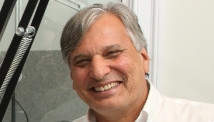
Brian Balogh
This one did. That's because future historians will mark it as the moment that Obama explained why he is a progressive.
The programs that Obama called for were characteristically liberal: reaffirming the social safety net, equal pay for women, etc. Nothing new here -- just the Obama classic.
What differed this time, and what this moment was made for (to twist the president's own words) was articulating the progressive rationale for these programmatic ends. "Preserving our individual freedoms ultimately requires collective action," Obama proudly told the nation.
Compare this with the rationale that Obama offered to the American people at his State of the Union less than a year ago. Saving the heroic mission to capture Osama bin Laden for the grand finale, the president insisted that the "mission only succeeded because" each brave warrior knew that "there's somebody behind you, watching your back." The pre-election Obama, still seeking the middle ideologically, deployed the lowest common denominator of Cold War liberalism -- collective security -- as the rationale for a far more ambitious social program.
His second election behind him, Obama linked his fate and the nation's to a rationale that propelled tens of millions of Americans into the middle class. By making collective action explicit, Obama yoked a century-old progressive agenda to the nation's founding documents and its past history. "Now, more than ever, we must do these things together, as one nation, and one people." To achieve America's lofty goals of "life, and liberty, and the pursuit of happiness" will require back watching, backslapping and no shortage of back-scratching as well.
But today, Obama left that for back benchers. He stated the "c" word -- collective -- loudly and proudly. And the nation will be better off for his candor.
Brian Balogh, a professor of history at the University of Virginia's Miller Center, is co-host of "Backstory With the American History Guys."
Follow us on Twitter @CNNOpinion.
Join us on Facebook/CNNOpinion.
The opinions expressed in this commentary are solely those of the authors.

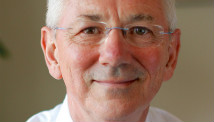
 iPhone, iPad and Mac are trademarks of Apple Inc., registered in the U.S. and other countries. App Store is a service mark of Apple Inc.
iPhone, iPad and Mac are trademarks of Apple Inc., registered in the U.S. and other countries. App Store is a service mark of Apple Inc.























